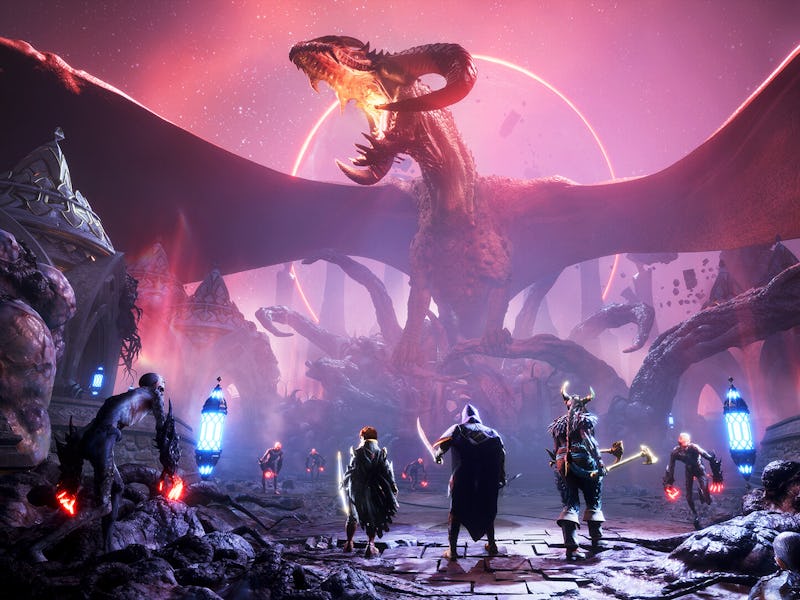Dragon Age Doesn’t Need To Respect Your Choices To Tell A Good Story
This story doesn’t need a prologue.

Your choices matter. That’s been the pitch of most huge, story-driven RPGs for years, and it’s one that players seem to love. It’s fun to weave your own story through play and share it with friends. Being in control of the narrative can bridge the gap between players and their characters. But when we’re talking about a sprawling, decade-long series instead of a single game, honoring play choice too much could be counter-productive, if not impossible.
When Dragon Age: The Veilguard launched, some players were irritated that it didn’t incorporate many of the choices they’d made in previous games in the series. That’s most notable in the fact that it doesn’t incorporate The Keep, a service that lets players import saves from the first two Dragon Age games into Dragon Age: Inquisition, carrying some decisions from the earlier games over to Inquisition’s world. Some players were upset that the choices they’d made in those games now amount to nothing in Veilguard, but director Corrine Busche says they might not be lost forever.
“Just because these choices from the past library of games didn't necessarily impact this particular story, that doesn't mean they're gone,” Busche told IGN. “I do fully expect that these choices going clear back to Dragon Age Origins will again matter.”
By the time the next Dragon Age rolls around, it may be comforting to players to see choices they made a decade ago pay off in some way. But it’s worth asking why we need that payoff in the first place, and what the cost of getting it might be.
In some ways, the answer to the first question is easy. Players have put a lot of time into the series and invested a lot of emotions into its story. It makes sense to want to see the narrative spanning multiple games as a cohesive whole, and their role in it as important. But that approach is necessarily limited. Players make countless choices in any Dragon Age game, from how they treat their party members to which factions they help achieve power. Only a handful of those decisions could ever be carried over anyway, so no matter what, no one is truly seeing one story play out from Origins through The Veilguard.
The desire then isn’t for the series’ entire story to make logical sense, with each choice in one game setting up events in the next. It’s the desire by players to see the decisions they feel are important validated by the developer. That’s by no means a bad thing on its own, but if taken too far, it can lead to the idea that BioWare somehow owes it to players to honor their individual version of events, which is of course different for every person.
Even if everyone agreed that BioWare should actually do that, the technical limitations to doing so are massive. It’s become more and more apparent in recent years that game development budgets and timelines are at an untenable point. The cost of making a game — in dollars, work hours, and the health of developers themselves — has grown beyond what’s sustainable. That’s evident in The Veilguard’s ten-year development time, which included restarting the project altogether, and it’s why games like Concord end up costing so much only to fail on launch. Imagine if The Veilguard had also included every choice that players find significant from previous games. That means not just writing dialogue, crafting cutscenes, or building environments that reference those choices, but creating multiple versions of each to reflect all the options players could have chosen. Including even a handful of those choices could have tacked untold expenses onto what was already a seemingly difficult development.
Maybe by the next Dragon Age game’s release, it will be possible for BioWare to make it a true continuation of everything that’s come before, perhaps drawing on the fabled “magic” of the studio. Even if that were the case, I don’t think I’d want it. I loved playing Dragon Age: Origins around its release, but that was 15 years ago. BioWare has changed since then, and the people working on the next Dragon Age game are by and large not the ones who made Origins. Asking them to simply provide the payoff for the work of their predecessors rather than making the best game they can now would almost certainly mean keeping them from chasing their biggest ideas for the next Dragon Age in service of nostalgia. The idea that canon matters in a series with so many alternate outcomes for each playthrough is hard to defend anyway. What mattered to you in your time with previous games will always be there, but what comes next deserves to be appreciated on its own, without being tied to one version of the past.